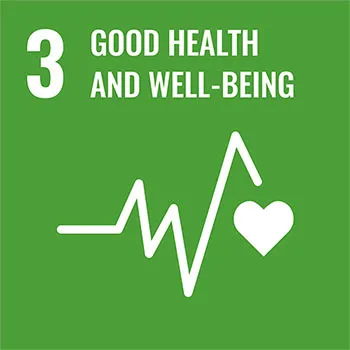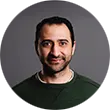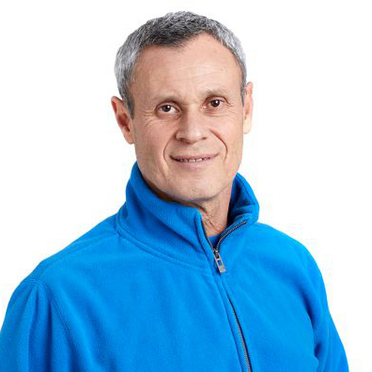MSc Sports Technology
The master's programme in Sports Technology is an interdisciplinary collaboration between KTH and the Swedish School of Sport and Health Sciences (GIH), Sweden's leading actors in their respective fields of science. The programme provides a unique understanding of the areas of sports science and engineering. Graduates gain the skills to develop new technologies for measuring sports performance and advanced healthcare.

Sports Technology at KTH
The two-year master's programme in Sports Technology provides interdisciplinary expertise in sports science and engineering. Sports technology focuses on measuring, simulating, and analyzing human motion outside the laboratory, while providing actionable real-time feedback to athletes, coaches, and audiences. Throughout your studies, you will acquire the knowledge to ask the right questions and find the most exciting answers.
The programme consists of traditional courses in computer science, electrical engineering and biomechanics to deliver technical skills, with an increasing focus on AI and data-driven approaches.. It also includes courses focusing on entrepreneurship, innovation, and design. This skillset is then complemented by a sport and exercise physiology course at GIH (The Swedish School of Sport and Health Science). The programme's interdisciplinary nature will give you the skills to understand and cooperate with people of different backgrounds and readily handle social, economic and environmental challenges.
The programme’s structure includes a wide range of courses and a degree project. Through project work, you will develop the ability to formulate objectives and questions, seek scientific literature, and present your work both verbally and in writing. The projects are often carried out in close collaboration with research institutions and companies within the field.
Upon completion of the programme, the student can influence and conduct improvement and development work in sports technology. The labour market primarily consists of small enterprises, specialised in specific products, and the expanding field also offers good possibilities to start one's own business. The education also provides a good foundation for research studies.
This is a two-year programme (120 ECTS credits) in English. Graduates are awarded the degree of Master of Science. The programme is given at KTH Campus and KTH Flemingsberg in Stockholm by the School of Engineering Sciences in Chemistry, Biotechnology and Health (at KTH).
Courses in the programme
The courses in the programme cover topics such as sports technology, sport science, biomechanics, electrical engineering, software engineering, mechanics, health and sport instrumentation, project management, entrepreneurship, innovation and design.
Courses in the master's programme in Sports Technology
Future and career
The labour market and society need engineers who can measure, simulate and analyse human movements. Such knowledge gives the prerequisites for creating a sustainable society where everyone can live a healthy and valuable life regardless of age and different physical and mental conditions. Engineers with these skills are needed in several social sectors such as in sports, health care, rehabilitation and in several different types of technology companies.
The number of technology companies with clear sports profiles is expanding significantly. Some of the most famous companies are Suunto, Precor, Sports Tracker, Garmin, Silva, Adidas and Nike. Wearables in the form of sport watches, activity meters, cameras, and so on, are a clear product range in which engineers from our master's programme provide the necessary knowledge.
In Sweden, a growing array of companies operates in this area. For example, Toptracer makes advanced ball-tracing technology for golf, Exxcentric develops novel flywheel training technology, Qinematic develops video analysis of human motor skills, and Challengize uses performance measurements to create challenges to inspire and motivate a healthier everyday life.
Alternative career paths after graduation include working with ergonomics, designing disability aids, healthcare, computer games, VR/AR and vehicle safety.
Sustainable development
Graduates from KTH have the knowledge and tools for moving society in a more sustainable direction, as sustainable development is an integral part of all programmes. The three key sustainable development goals addressed by the master's programme in Sports Technology are:



SDG 3. Good health and well-being:
The goal of the programme is to measure, simulate and analyse human movement outside a laboratory, enabling health, well-being, and medical care solutions beyond the hospital. These capabilities also play a crucial role in ergonomics by detecting hazards in the working environment, helping to prevent injuries, enhance rehabilitation outcomes, and promote long-term physical health.
SDG 4. Quality education:
Through interdisciplinary learning between engineering and sports science, the programme fosters knowledge-sharing across disciplines and empowers graduates to educate others in applying sports technology for health and performance.
SDG 8. Decent work and economic growth:
Graduates contribute to a rapidly expanding global industry, developing innovative technologies that create new business opportunities in sports performance, health tech, and rehabilitation.
Faculty and research
Our research within sports technology aims at helping athletes to:
- Measure their performance in an accurate and objective way. This requires more comprehensive technology than just a stopwatch or a tape measure. This may, for example, involve measuring the force exerted by a kayaker in a paddle stroke or the mechanical energy consumed by an athlete during a run.
- Calculate optimal performance. In every sport, there are many accepted truths about how different movements should be performed. Our task is to defy or confirm these truths through physical and mathematical models, helping athletes optimize technique.
- Perceive their performance in real-time. This is done through so-called "augmented feedback"; a runner can, for example, receive audio information describing how the running stride looks and get tips on how to improve it.







